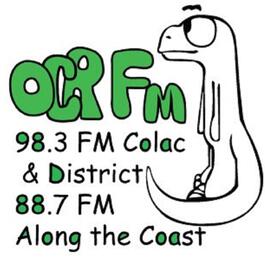
Mia discusses the issues around privacy, taking photos and sharing them via social media. In public places like streets, beaches and parks, photography is generally legal, but how you use the images matters. If a photo is shared to harass, humiliate, threaten or abuse, it may become a criminal or civil issue. Commercial use of a person’s image (e.g. using someone’s photo in advertising or promotion) requires their consent, regardless of where the photo was taken. It’s not illegal to photograph private property from a public space (like taking a picture of a house from the street), but photographing someone in a private act without consent may be an offence under voyeurism or image-based abuse laws. If you're unsure whether photography is allowed, always ask. If Someone Is Taking Your Photo Without Consent While being photographed in public is often lawful, intent matters. If someone is targeting you in a way that feels creepy, threatening or harassing, you have options: o Stay calm and move to a safer, more visible area. o Take note of the time, location, and what the person looks like. o Report it to venue staff, security or police, especially if the person refuses to stop. o If the photo is later shared to ridicule or shame you, report it to the platform o Report to police if it escalates into harassment or abuse. Be a Responsible Bystander Don’t film or post images of others—especially strangers or children—for laughs, ridicule or content. If someone appears distressed, unaware, or unable to consent, don’t share it. Step in or notify staff/security if you see someone filming others inappropriately. Speak up: report harmful content—don’t repost it. Just because it’s legal doesn’t make it right. Always think: Is this respectful? Is this necessary? Would I be okay if it were me or my child? If someone crosses the line—from unwanted photography to online shaming or harassment—report it to the platform, the eSafety Commissioner, or Crime Stoppers Victoria. Online Privacy & Safety Tips Protect yourself and others from digital humiliation, harassment, and misuse of content Protect Your Own Content Review your social media privacy settings regularly. Turn off location tagging or delay posting until after you’ve left an event. Be selective with who can comment, share or tag you in photos. If someone else tags you in a post you’re uncomfortable with, don’t be afraid to untag yourself or ask them to remove it. Think Before You Post Kids Online Even if you’re proud of a great moment at a school concert or weekend footy match, it’s important to think twice before uploading images of children—especially other people’s children. Why it matters: You may be breaching another parent’s privacy expectations. Images can be taken out of context or misused by others online (especially with AI capabilities). Children don’t have the ability to consent to what’s shared about them, and those images can live online forever. Safer sharing practices: Only post children if you have their parent or guardian’s consent. Avoid sharing school uniforms, name tags, or location-specific identifiers. Use private or invite-only albums when sharing with family or friends. Consider covering faces or using stickers/emojis if you're sharing a group shot. Be a Responsible Digital Citizen Don’t film strangers or children at public events for laughs, clout, or ridicule. Call out online bullying or shaming, and report abusive content. Remember: likes fade fast, but the harm can last much longer. If You or Someone You Know is Targeted Save or screenshot the content. Report it to the platform and, if serious, to Crime Stoppers Victoria. For further information head to Crimestoppers Victoria https://www.crimestoppersvic.com.au/
From "921"


Comments
Add comment Feedback